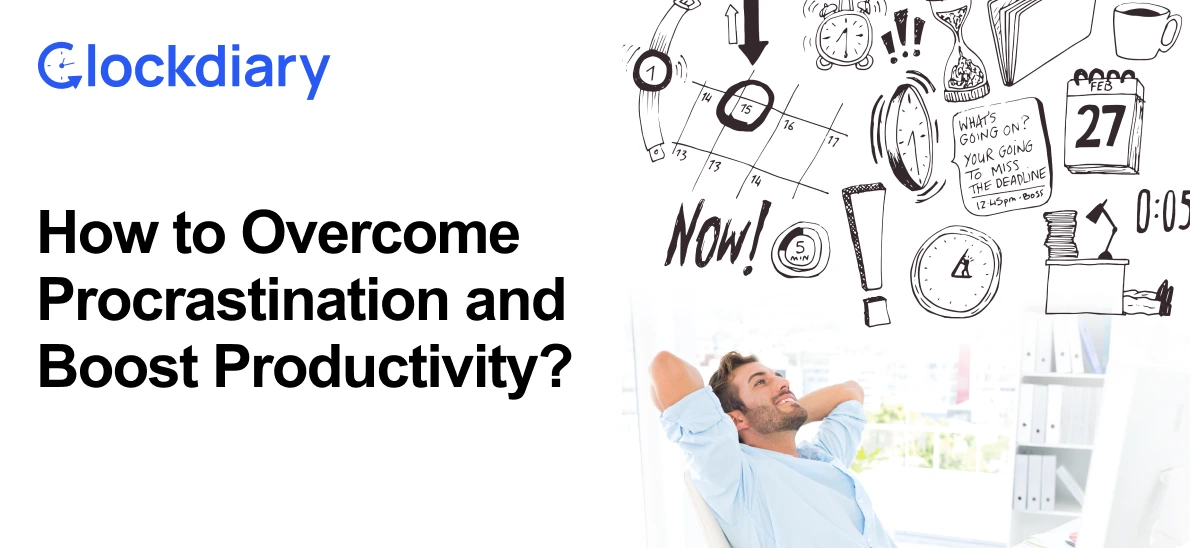

Are you constantly pushing tasks to “later” and then scrambling at the last minute? You’re not alone—according to a study by Darius Foroux, roughly 88% of workers procrastinate for at least an hour a day. That’s over five wasted weeks a year! This is where the need to overcome procrastination at work and boost productivity is perceived the most.
Procrastination isn’t just about laziness—it’s often a mix of overwhelm, distraction, and perfectionism. The good news? You can break the procrastination cycle and take back control of your time.
| Quick Summary Struggling to stop putting things off? You’re not alone. Procrastination affects productivity, focus, and even mental health. But the good news? It’s totally fixable with the right strategies. In this guide, we explore: ● What procrastination really is and why we do it ● Common root causes like fear of failure, lack of motivation, or perfectionism ● 9 practical, science-backed tips to overcome procrastination ● Helpful tools including time management apps, focus boosters & habit trackers ● Long-term motivation hacks and how to bounce back from setbacks ● Real-life success stories of people who finally beat procrastination ● Bonus tips for a proactive lifestyle — including better sleep, routines & exercise Whether you’re a student, remote worker, or entrepreneur, this guide will help you take back control of your time and get things done without burnout. |
In this guide, we’ll explore practical, science-backed strategies to help you stop delaying and start doing—so you can finally boost your productivity and get ahead in your career. Let’s dive in!
Procrastination is the habit of delaying or postponing tasks despite knowing it may lead to stress or negative consequences. It’s not just about poor time management—it often comes from perfectionism, fear of failure, or feeling overwhelmed.
Instead of starting a task, the brain seeks short-term comfort, like scrolling social media or doing low-priority work. While occasional procrastination is normal, chronic procrastination can lower productivity, increase anxiety, and affect career growth. Understanding why we procrastinate is the first step to overcoming it. With the right strategies, it’s possible to break the cycle of procrastination and regain control of your time and focus.
Procrastination isn’t just about being lazy—it’s often rooted in deeper psychological patterns. Here are some of the most common reasons people put off important tasks:
One of the biggest reasons for procrastination is fear of failure. According to the American Psychological Association, fear of failure is among the most common reasons for procrastination.
When a task feels challenging or high-stakes, the fear of messing up can be paralyzing. Instead of taking action, the brain convinces us to delay, hoping that “future us” will somehow be more prepared. This avoidance might feel like relief in the moment, but it only leads to more anxiety and rushed work later.

Sometimes, we procrastinate because we simply don’t feel motivated or don’t understand why a task matters. A survey highlighted that 41% of adults procrastinate due to a lack of motivation. If something seems boring, unimportant, or disconnected from personal goals, it’s easy to put it off.
On top of that, unclear expectations or vague instructions can make a task feel even more daunting. Without a clear “why” or a sense of direction, we tend to fill our time with distractions instead of taking meaningful action.
Ironically, perfectionists often struggle with procrastination the most. When a project feels too big, too complex, or too important, it’s easy to feel overwhelmed. The thought of doing it perfectly can create so much pressure that starting feels impossible.
Instead of making progress, perfectionists delay until they have the “perfect” plan or enough time— which rarely happens. This cycle of avoidance leads to last-minute stress and work that falls short of expectations.
Understanding these causes is the first step to overcoming procrastination. The key is to break big tasks into smaller steps, set clear goals, and challenge perfectionist thinking—all of which we’ll cover next!
Procrastination can feel like an endless cycle—delaying tasks, stressing about them, and then scrambling at the last minute. Here’s a line graph showing how procrastination affects productivity over time. The blue line represents disciplined workers, who maintain steady productivity, while the red line represents chronic procrastinators, whose productivity declines as time progresses.
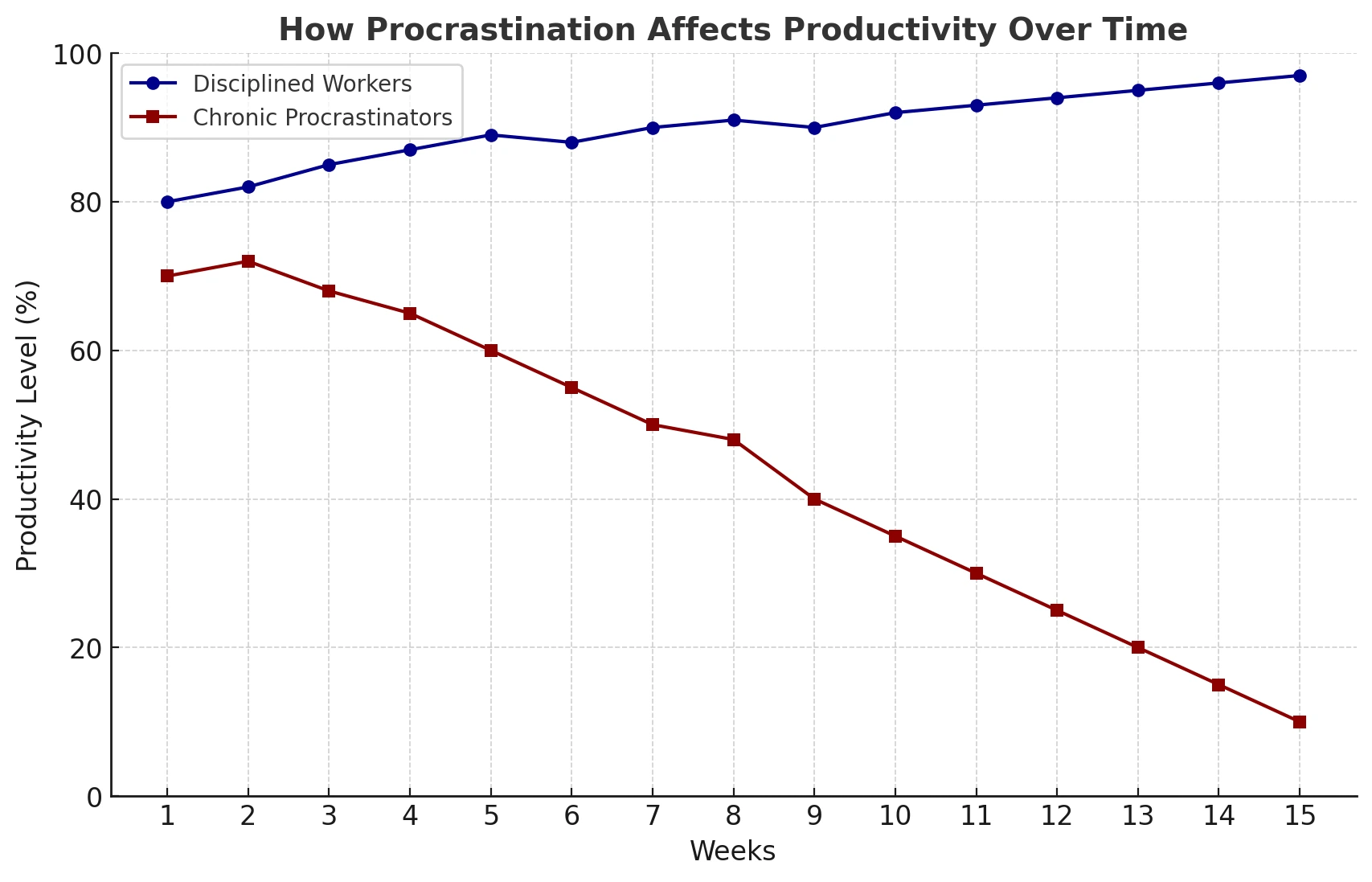
But with the right strategies, you can break free from this habit and take control of your productivity. Here are nine actionable tips to help you overcome procrastination and get more done.
Big tasks often feel overwhelming, which makes it tempting to delay them. The solution? Break them down into smaller, bite-sized steps. Instead of thinking, “I need to write a report,” start with something small, like gathering research or creating an outline.
As author Anne Lamott advises in her book “Bird by Bird,” take it “bird by bird,” focusing on one small task at a time. Completing smaller milestones builds momentum and makes the task feel more doable.
Effective time management can help you stay focused and productive, thus helping you overcome procrastination. Techniques like the Pomodoro Technique (working in 25-minute sprints with short breaks) or time blocking (scheduling specific tasks at set times) keep you on track. Experiment with different methods to find what works best for you. Pomodoro timer apps or time-blocking apps come in handy here.

Vague goals make it easy to procrastinate. Instead of saying, “I need to finish this project,” use SMART goals—goals that are Specific, Measurable, Achievable, Relevant, and Time-bound. For example, “I will complete the first draft of my report by Thursday at 3 PM.”
As management consultant Peter Drucker noted, “What gets measured gets managed.” Having a clear goal with a deadline makes it easier to take action.
Distractions are one of the biggest roadblocks to productivity. To overcome procrastination and stay focused, eliminate common distractions—turn off notifications, close unnecessary tabs, and set up a dedicated workspace. Noise-canceling headphones, website blockers, or simply working in a quiet space can make a huge difference.
The 2-minute rule, popularized by productivity expert David Allen, states: “If a task takes less than two minutes, do it immediately.” This helps clear small tasks from your to-do list, reducing mental clutter. It also helps build momentum—once you start a task, you’re more likely to keep going.
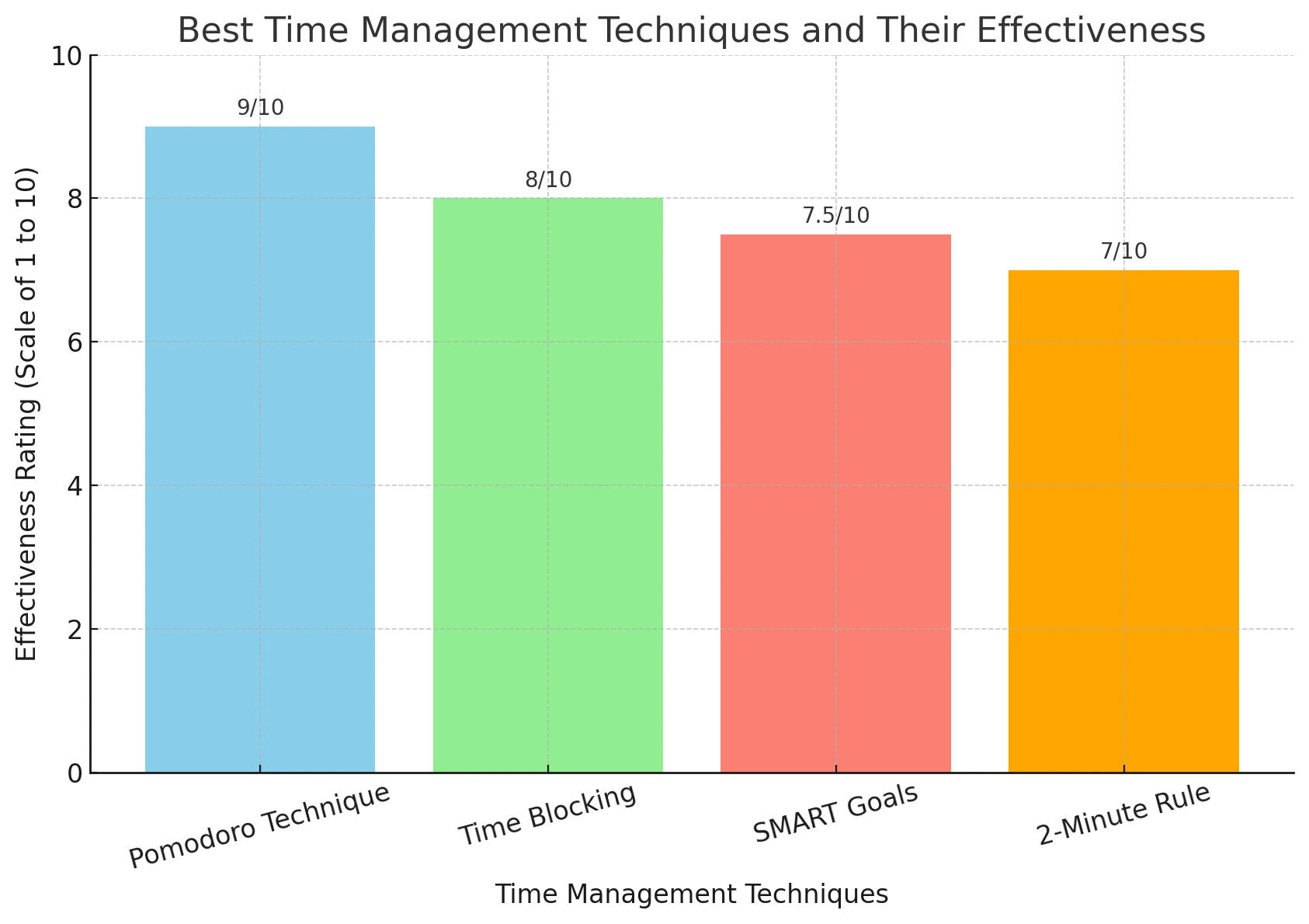

Your brain loves rewards, so use them to your advantage! Set up a simple reward system to stay motivated. For example, after completing a difficult task, take a short break, grab a coffee, or enjoy a quick walk. Associating work with positive reinforcement helps train your brain to stay on track.
Having someone to check in with can help you overcome procrastination psychology. Whether it’s a coworker, friend, or mentor, an accountability partner keeps you responsible for meeting your goals.
As author Steven Pressfield suggests in “The War of Art,” having an accountability partner can help you stay disciplined and overcome resistance. Simply knowing someone will ask about your progress makes you more likely to follow through.

Procrastination often comes from stress and anxiety. Mindfulness techniques, like deep breathing, meditation, or journaling, can help calm your mind and reduce the urge to avoid tasks.
Jon Kabat-Zinn, creator of the Mindfulness-Based Stress Reduction program, emphasizes the role of mindfulness in enhancing attention and reducing procrastination. Even a few minutes of mindfulness each day can make it easier to focus and take action.

Overcoming procrastination at work isn’t a one-time fix—it’s an ongoing process. Set aside time to reflect on what’s working and what’s not. Are certain tasks always getting pushed back? Are distractions pulling you away? Adjust your strategies as needed to continuously improve your productivity.
Procrastination doesn’t have to control your life. By applying these nine actionable strategies, you can shift from delaying tasks to getting things done efficiently and stress-free. The key is to start small, stay consistent, and be kind to yourself along the way. Your future self will thank you!
Procrastination can be a significant barrier to productivity, but with the right tools, you can manage your time more effectively and stay focused. Productivity Google Chrome Extensions (such as those for removing distractions or getting motivated) can also prove to be a boon. Here are some top-rated applications designed to help you overcome procrastination:
Effective time management is crucial for enhancing productivity. The following apps to avoid procrastination assist in organizing tasks and managing time efficiently:
Clockdiary is a comprehensive AI-powered time-tracking application that assists individuals and teams in monitoring work hours across various projects. It’s particularly beneficial for overcoming procrastination at work, thereby enhancing productivity and ensuring accurate time allocation.
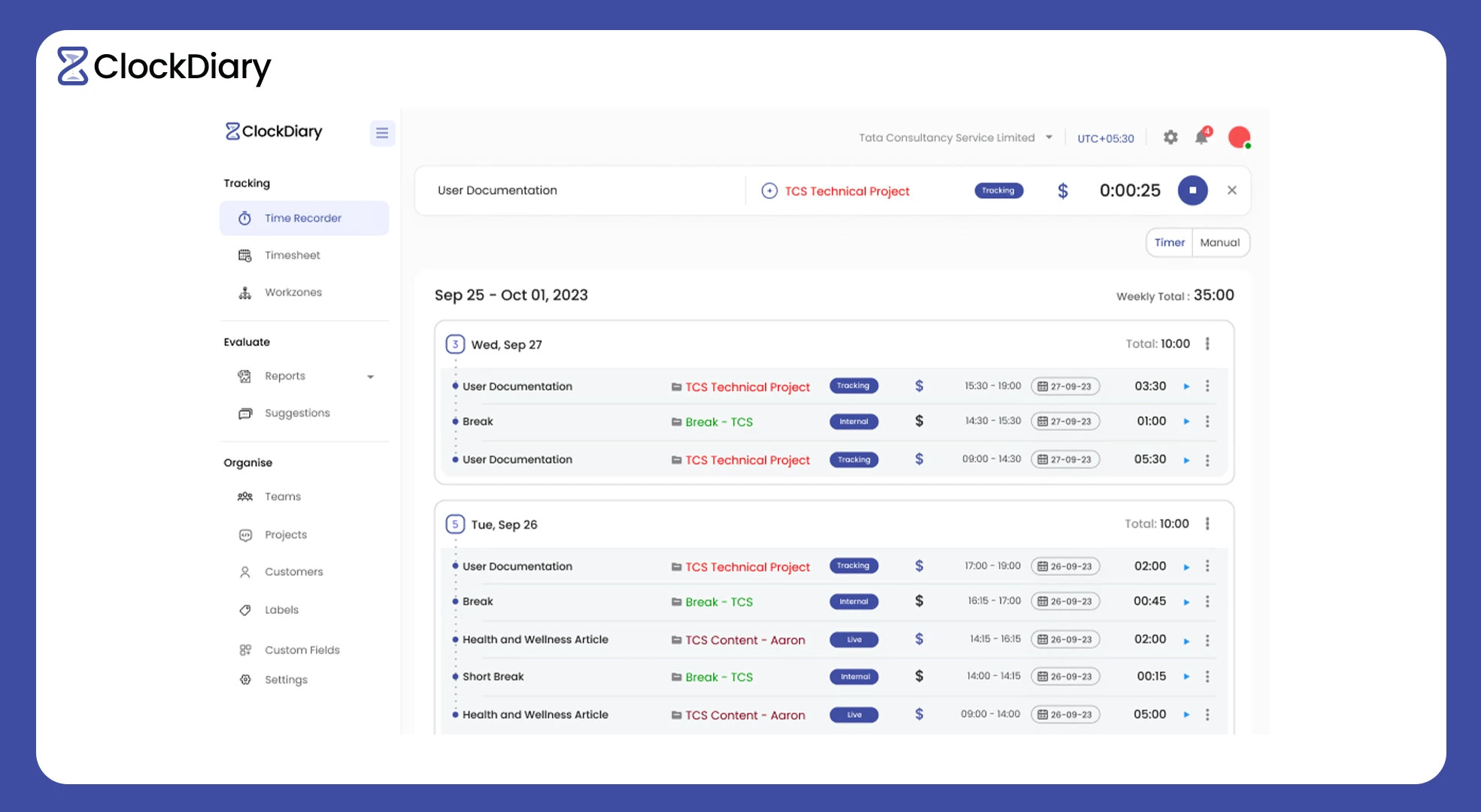
Key Features:
Time Tracking
Timesheets
Project Management
AI-powered Smart Assistant
Track Employee Productivity by AI Rule Engine
AI Smart Screen Insights
Clockdiary offers a free forever plan for up to 10 users, with basic features, including time tracking and integrations with platforms like Slack,Trello, and Jira. Paid plans provide additional functionalities such as priority ticket handling and 24/7 customer support.
Trello is a user-friendly project management tool that utilizes boards, lists, and cards to help you organize tasks and collaborate with others.
Key Features:
Asana is a comprehensive work management platform designed to help teams organize, track, and manage their work.
Key Features:
Maintaining concentration is absolutely essential to overcoming procrastination. The following tools are designed to enhance focus during work sessions:
Focus Booster is designed around the Pomodoro Technique, promoting work in short, timed intervals to enhance concentration.
Key Features:
Forest encourages you to stay off your phone by planting virtual trees that grow while you remain focused.

Key Features:
Eliminating digital distractions is vital for maintaining productivity. The following tools help block access to distracting websites and applications:
StayFocusd is a browser extension that helps you stay focused by restricting the amount of time you can spend on distracting websites.
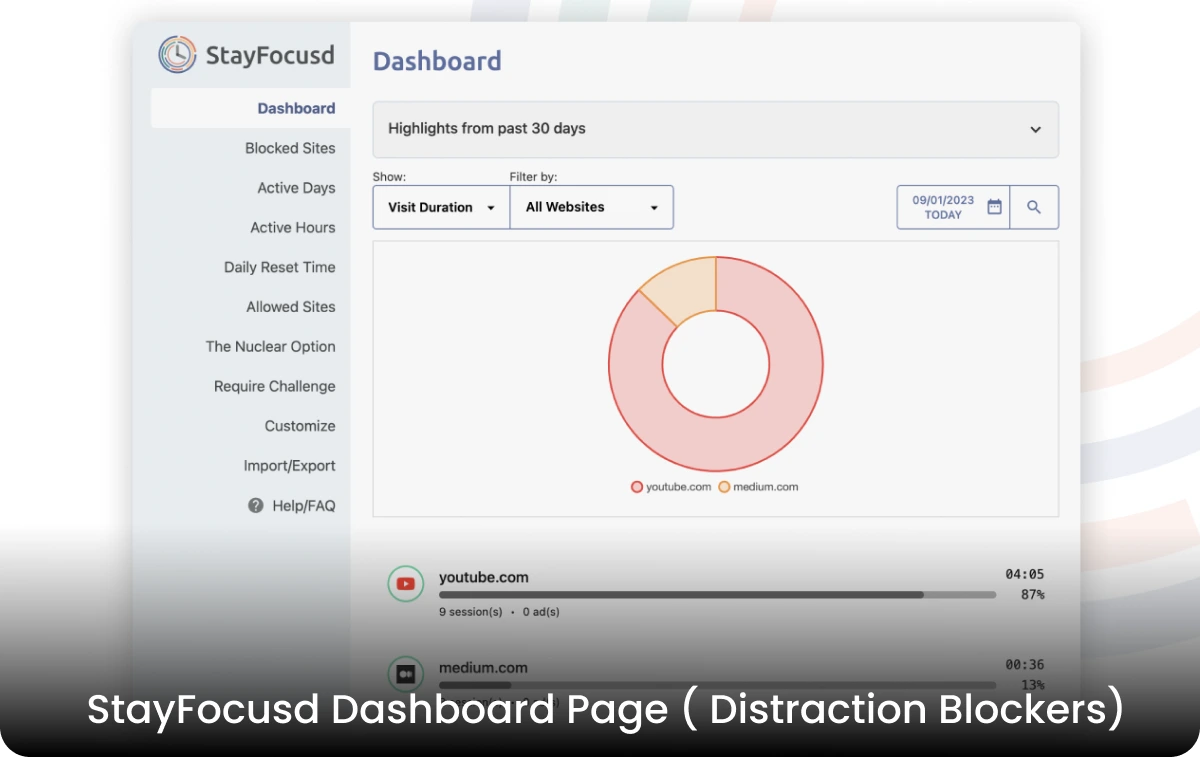
Key Features:
Freedom blocks distracting websites and apps across all your devices to help you focus.
Key Features:
Building and maintaining productive habits is key to avoiding procrastination. The following apps to overcome procrastination assist in habit formation and tracking:
Habitica turns habit-building into a game, making it fun to develop productive routines.

Key Features:
Streaks is a habit-tracking app that helps you form good habits by encouraging you to maintain streaks of consecutive days.
Key Features:
By incorporating these tools into your daily routine, you can effectively manage your time, minimize distractions, and build productive habits to overcome procrastination.
Overcoming procrastination and laziness isn’t just about short-term hacks—it’s about building lasting habits that keep you motivated and productive. Here’s how to stay on track in the long run.
Consistency is the secret to lasting succes. As Steven Pressfield notes in The War of Art, “The most pernicious aspect of procrastination is that it can become a habit.”
To counteract this, it’s essential to develop positive routines. The founder of Stoicism emphasized that “Well-being is realized by small steps, but is truly no small thing.” By committing to small, manageable tasks daily, you can create momentum that leads to significant achievements over time.
Instead of relying on bursts of motivation, focus on creating daily habits that make productivity second nature.
Over time, these habits will rewire your brain to prioritize action over avoidance and thus help you overcome procrastination.
Setbacks are an inevitable part of any journey, but they don’t have to derail your progress. Napoleon Hill wisely said, “When defeat comes, accept it as a signal that your plans are not sound. Rebuild those plans and set sail once more toward your coveted goal.”
Viewing setbacks as learning opportunities rather than failures can foster resilience. It’s about realizing we have nothing to lose and everything to gain by advancing towards our goals, even in the face of setbacks. Embracing this mindset allows you to adapt, grow, and continue moving forward, turning obstacles into stepping stones.
Even with the best intentions, setbacks happen. The key is to recover quickly instead of falling back into procrastination.
By building resilience and staying adaptable, you’ll maintain motivation and overcome procrastination in the long run.
Procrastination affects everyone, even some of the most successful people in history. However, they found ways to push through and achieve greatness. Here are a few inspiring examples.
Elon Musk
Elon Musk, the CEO of Tesla and SpaceX, is known for his relentless work ethic. He uses time blocking, dividing his day into five-minute slots to eliminate wasted time. By prioritizing execution over overthinking, he keeps himself productive despite juggling multiple companies.
Abraham Lincoln
Lincoln struggled with self-doubt and hesitation, often delaying decisions. However, he overcame procrastination by seeking advice from mentors and breaking problems into smaller parts. This method helped him lead the U.S. through its most challenging period.
Bill Gates
In college, Gates was a notorious last-minute worker, often cramming before deadlines. Eventually, he realized that strategic planning and prioritization were key to success. His focus on long-term vision over short-term distractions helped him build Microsoft into a tech giant.
Leonardo Da Vinci
Da Vinci was a classic procrastinator, leaving many projects unfinished. However, he combated this by immersing himself in curiosity—switching between disciplines and using his natural creativity to stay engaged and productive.
Steve Jobs
Jobs believed in strategic procrastination, using delays as a way to allow creative ideas to mature. He intentionally stepped back from projects before finalizing them, ensuring he only delivered high-quality, innovative work.
Margaret Atwood
The acclaimed author of “The Handmaid’s Tale” overcame procrastination by committing to daily writing habits, no matter how small. This discipline helped her complete award-winning novels.
Frank Lloyd Wright
Despite procrastinating for months, Wright designed the iconic Fallingwater house in just a few hours before a major meeting. His ability to work under pressure and trust his instincts led to one of the most famous architectural designs in history.
These stories prove that procrastination isn’t a dead-end—it’s something that can be managed and even used strategically for success.
Sometimes, overcoming procrastination psychology isn’t just about better time management—it’s about taking care of yourself. Here are three additional strategies to help you stay focused and productive.
Lack of sleep affects your ability to concentrate, make decisions, and stay motivated. A study highlighted by the National Sleep Foundation found that bedtime procrastination—delaying sleep for leisure activities—can lead to reduced sleep quality and duration, which in turn impairs cognitive functions and self-control.
When you’re exhausted, procrastination becomes a natural response because your brain struggles to prioritize tasks. Aim for 7–9 hours of quality sleep each night, maintain a consistent bedtime, and avoid screens before bed to improve your rest, and thus overcome procrastination.

Regular physical activity isn’t just good for your body—it’s a productivity booster. Exercise increases blood flow to the brain, enhances focus, and reduces stress and anxiety, two major causes of procrastination. Research indicates that individuals engaging in higher levels of physical activity exhibit significantly lower levels of procrastination behavior.
Even short bursts of movement, like a 10-minute walk or stretching break, can increase energy levels and motivation. Try incorporating physical activity into your daily routine, whether it’s yoga, a workout, or simply taking the stairs instead of the elevator.
How you start your day sets the tone for the rest of it. A structured morning routine helps you gain momentum early, making it less likely that you’ll procrastinate later.
Successful people often have morning habits like journaling, meditation, or reading. The key is to eliminate decision fatigue—plan your first tasks the night before and begin your day with purpose.
By prioritizing sleep, movement, and a strong morning routine, you’ll set yourself up for long-term success and overcome procrastination in the best way possible.
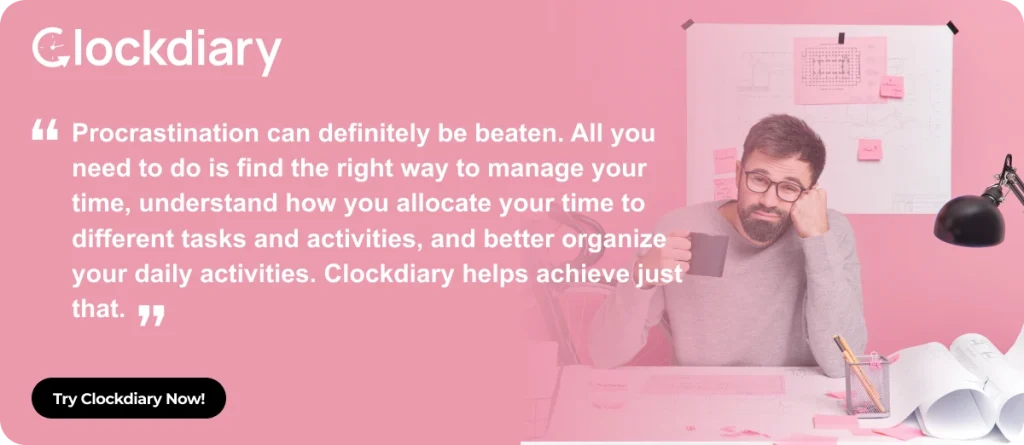
Frequently Asked Questions (FAQs):
Procrastination often happens because the brain seeks short-term pleasure, avoiding discomfort or fear of an unknown or negative outcome associated with the task. Even though we know procrastination is harmful, the emotional reward of avoiding the task in the moment outweighs the long-term consequences, creating a cycle of procrastination that’s hard to break.
Break big tasks into smaller, manageable steps to reduce overwhelm and create a clear action plan. Use techniques like the Pomodoro Technique or time blocking to stay focused and build momentum one step at a time.
Yes, procrastination can sometimes be a sign of underlying issues like anxiety, perfectionism, ADHD, or fear of failure. If procrastination is chronic and affects daily life, it may be helpful to identify emotional triggers or seek professional guidance to address the root cause.
Clockdiary is one of the best tools for beating procrastination, as it helps you track time, check progress, and stay accountable. With features like activity tracker, detailed reports, and project tracking, it ensures you stay focused, manage tasks efficiently, and build productive habits.